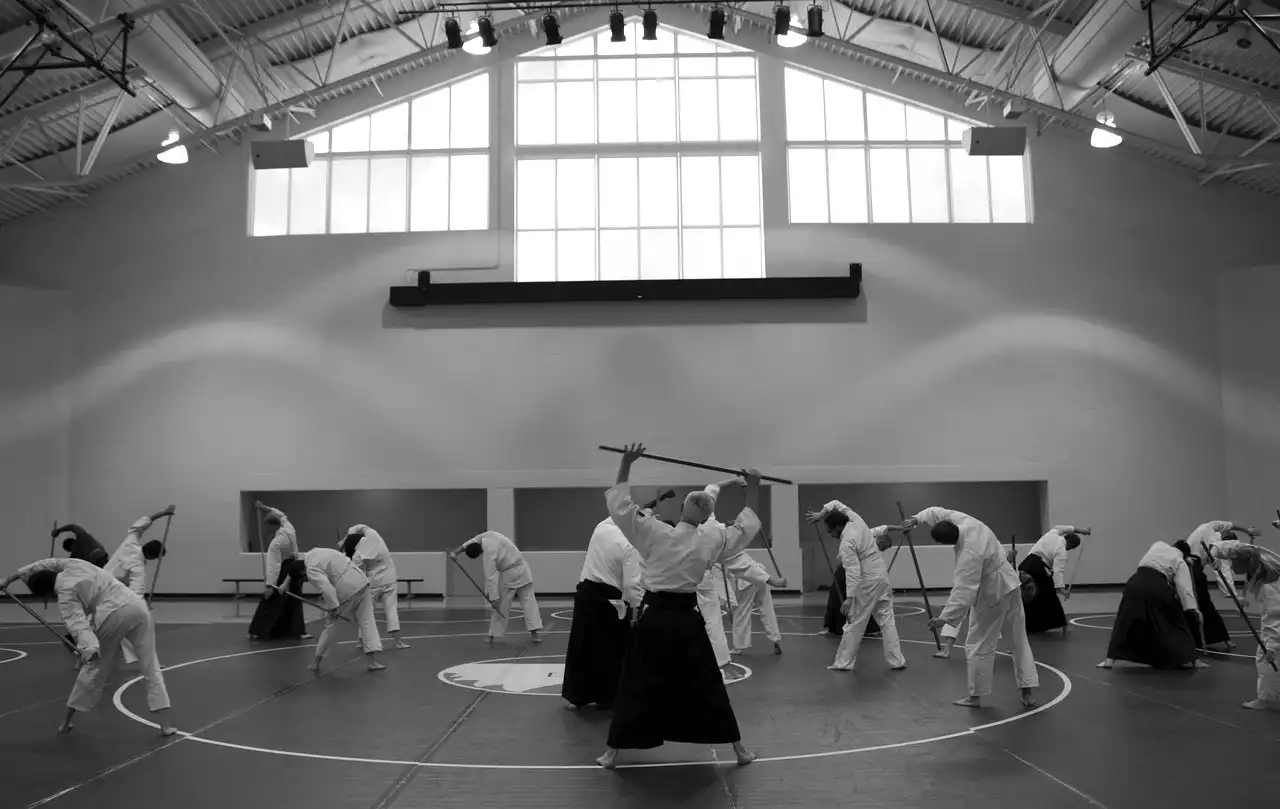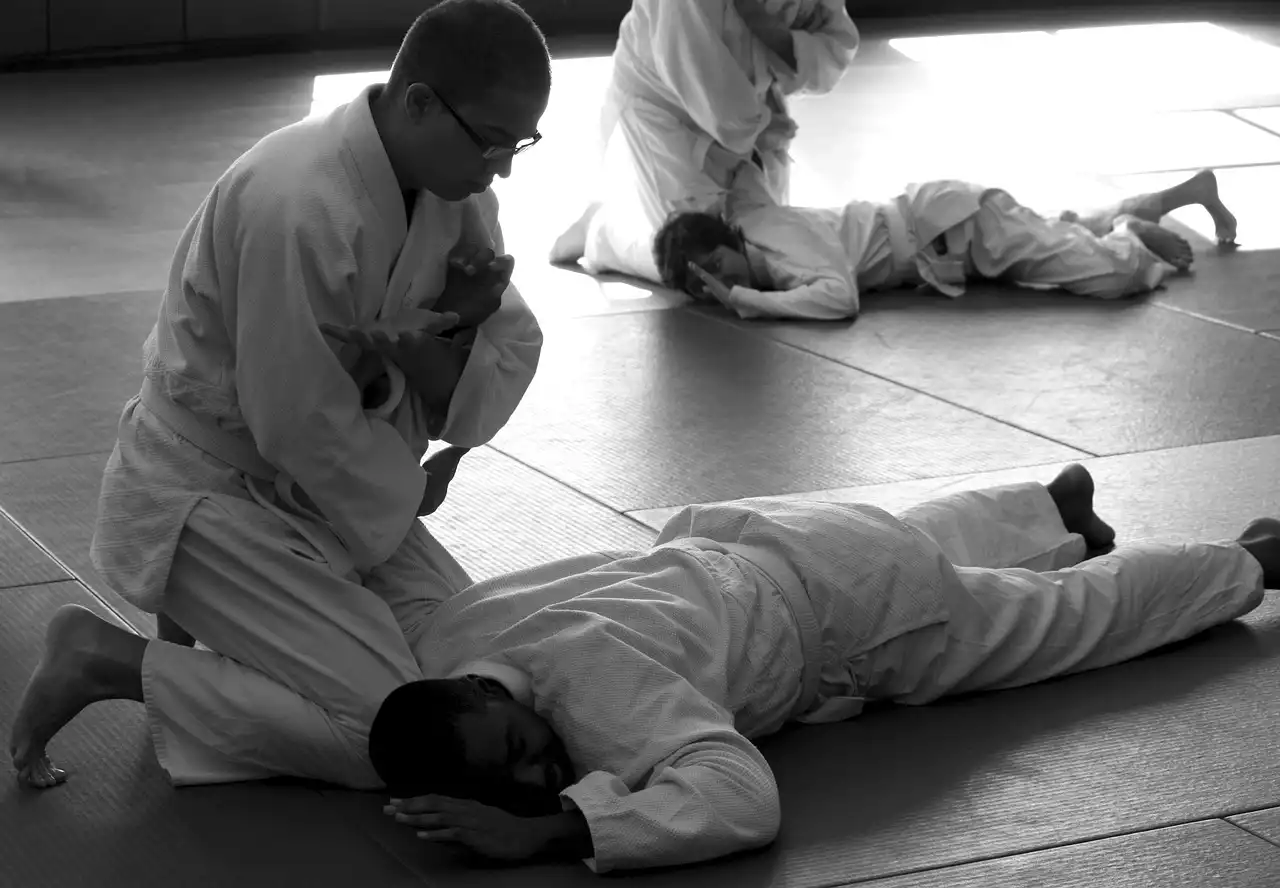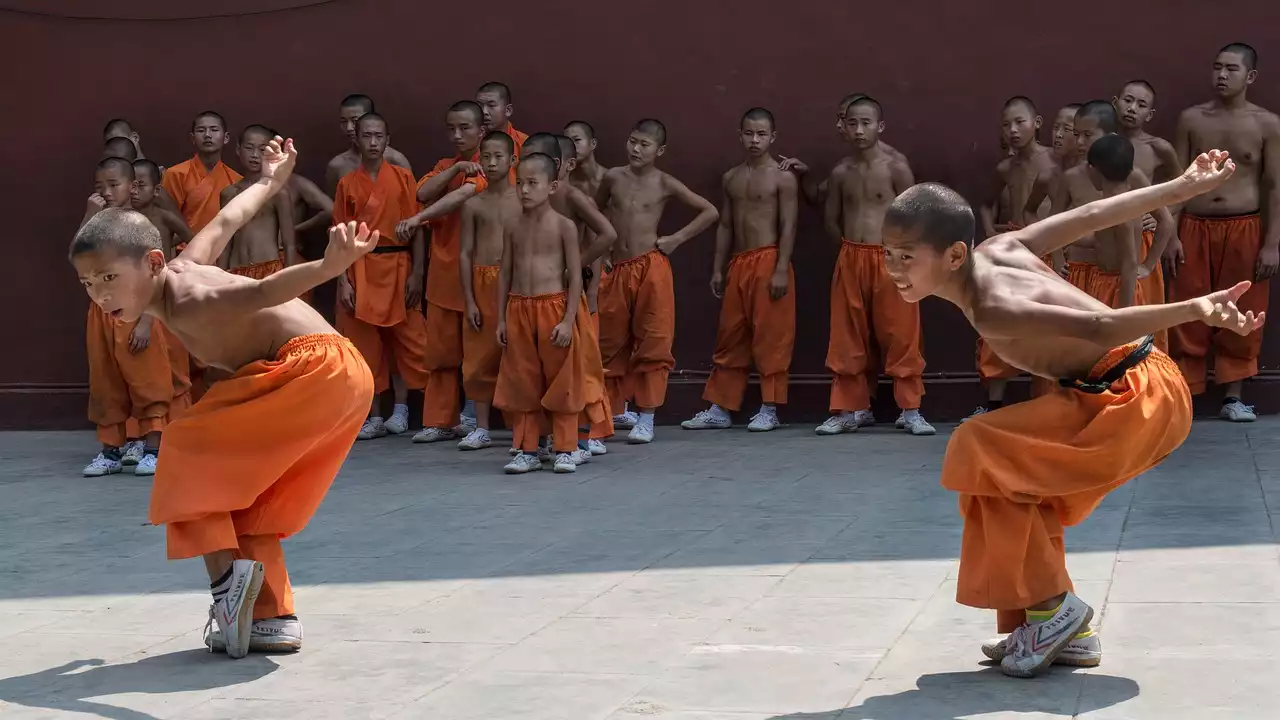The Philosophy of Aikido
Aikido is a martial art that was developed in Japan in the early 20th century by Morihei Ueshiba. The word Aikido means "the way of harmony with the spirit" or "the way of unifying with life energy." The philosophy of Aikido is based on the principle of non-resistance, which means that you don't resist your opponent's attack but instead use their energy against them. Aikido focuses on blending with your opponent's movements and redirecting their energy in a way that neutralizes their attack.
One of the core principles of Aikido is the concept of "Ai-ki," which means "harmony of energy." This principle emphasizes the importance of being in harmony with yourself and your surroundings. Aikido teaches you to be aware of your body, your mind, and your environment, and to use this awareness to stay centered and calm in any situation.
Another important principle of Aikido is "Mushin," which means "no mind." This principle emphasizes the importance of being present in the moment and not letting your thoughts and emotions distract you. Aikido teaches you to let go of your ego and your fears and to trust in your ability to respond to any situation with calmness and clarity.
Aikido also emphasizes the concept of "Aiki-nage," which means "blending with the opponent's energy." This principle teaches you to blend with your opponent's movements and to use their energy and momentum to neutralize their attack. Aikido techniques are based on the idea of circular motion, which allows you to redirect your opponent's energy in a way that disarms them.
The Benefits of Practicing Aikido
Practicing Aikido can have numerous physical, mental, and emotional benefits. Aikido is a low-impact martial art that can help improve your flexibility, strength, and endurance. Aikido techniques involve movements that require balance and coordination, which can help improve your overall physical fitness.
But the benefits of Aikido go beyond just physical fitness. Aikido can also help improve your mental and emotional well-being. Aikido teaches you to be calm and centered in stressful situations, which can translate into your daily life. Aikido techniques can help you develop a sense of self-confidence and self-discipline, which can be useful in all areas of your life.
Aikido can also help improve your interpersonal relationships. Aikido emphasizes the importance of harmony and cooperation, which can help improve your communication and conflict resolution skills. Aikido techniques can help you learn how to listen to others and how to respond in a way that is respectful and non-threatening.
Aikido Techniques for Self-Defense
Aikido techniques are based on the principle of non-resistance and using an attacker's energy against them. Aikido techniques involve circular movements that allow you to redirect your opponent's energy in a way that disarms them. Aikido techniques can be used to defend against a variety of attacks, including punches, kicks, and grabs.
One of the most basic Aikido techniques is the "Ikkyo" technique, which involves taking your opponent's wrist and twisting it in a way that immobilizes their arm. Another common Aikido technique is the "Shihonage" technique, which involves taking your opponent's arm and twisting it in a way that throws them to the ground.
Aikido techniques can be used to defend against multiple attackers as well. Aikido teaches you to be aware of your surroundings and to use your opponent's energy against them. Aikido techniques can be used to neutralize an attacker's attack and create an opportunity for escape.
Aikido Training and Practice
Aikido training involves practicing techniques with a partner. Aikido techniques are practiced in a controlled environment, with the goal of developing muscle memory and reflexes. Aikido training also involves practicing ukemi, which is the art of falling safely. Ukemi is an important part of Aikido training, as it allows you to practice techniques at full speed without the risk of injury.
Aikido training can be done at any age and at any fitness level. Aikido techniques can be adapted to suit each individual's physical abilities. Aikido training can be done as a form of self-defense, as a way to improve physical fitness, or as a way to develop mental and emotional well-being.
Aikido Weapons and Their Significance
Aikido also involves the use of weapons, such as the bokken (wooden sword) and jo (wooden staff). Aikido weapons training emphasizes the importance of timing, distance, and precision. Aikido weapons training can help improve your overall Aikido technique and can also be used as a form of self-defense.
The bokken represents the sword, while the jo represents the spear. Aikido weapons training involves practicing techniques that involve both offensive and defensive movements. Aikido weapons training can help improve your coordination and balance, as well as your overall physical fitness.
Aikido and Meditation
Aikido also incorporates meditation into its practice. Aikido meditation involves focusing on your breath and your body, and letting go of any distractions or thoughts. Aikido meditation can help you develop a sense of inner peace and calmness, which can be useful in stressful situations.
Aikido meditation can also help improve your mental and emotional well-being. Aikido meditation can help you let go of negative thoughts and emotions and develop a sense of clarity and focus. Aikido meditation can be done at any time and in any place, making it a useful tool for daily life.
Aikido for Inner Peace and Conflict Resolution
Aikido teaches you to be calm and centered in stressful situations, which can translate into your daily life. Aikido techniques can be used to resolve conflicts in a peaceful and respectful manner. Aikido emphasizes the importance of harmony and cooperation, which can help improve your interpersonal relationships.
Aikido can also help you develop a sense of inner peace and calmness. Aikido meditation can help you let go of negative thoughts and emotions and develop a sense of clarity and focus. Aikido techniques can help you develop self-confidence and self-discipline, which can be useful in all areas of your life.
Aikido Schools and Instructors
Aikido is taught in schools and dojos all over the world. Aikido schools and instructors vary in their teaching styles and techniques. It is important to find an Aikido school and instructor that is compatible with your goals and physical abilities.
When choosing an Aikido school, it is important to look for a school that emphasizes safety and respect. Aikido is a martial art that emphasizes the importance of harmony and cooperation, and it is important to find a school that reflects these values.









